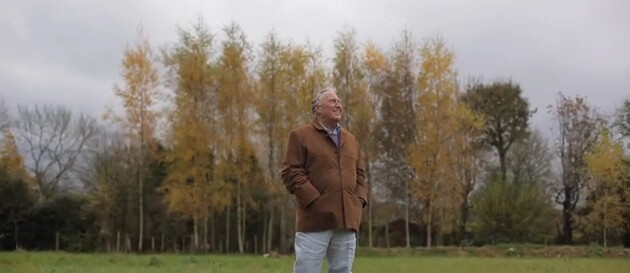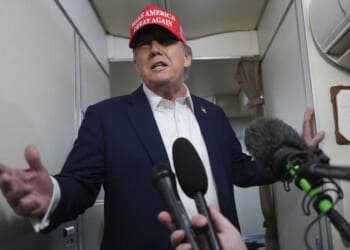Once, long ago, anyone who took a college freshman English class would have encountered T.S. Eliot’s famous poem, The Waste Land. Some will remember the experience fondly, others not so much, and many of us, with the passage of years, scarcely remember it at all. The one part that still sticks with me the most is Eliot’s dedication to Ezra Pound, who’d played a great role in editing Eliot’s masterpiece.
Il miglior fabbro, borrowing a phrase from Dante. “The better craftsman.” It’s been over a week since novelist Frederick Forsyth passed away at the age of 86. Reflecting on his passing, I keep coming back to Eliot’s words of dedication, and for the simplest of reasons. If we’re honest with ourselves, those of us who write action/adventure novels will freely acknowledge that Forsyth was “the better craftsman,” indeed, the best craftsman. I suspect that Forsyth would particularly appreciate the “craftsman” portion of the accolade, since, by his own admission, he only aspired to be a craftsman, his ambition shorn of pretensions to higher art. (RELATED: Love and Reason in the Ruins)
But an honest accounting would place him at the very apex of the thriller writer’s craft, and, more, would recognize him as the one author who, more than any other, created the genre as it exists today.
After a respectable start as first an RAF fighter pilot and then as a newspaper reporter, Forsyth found himself at age 33, in his own words, “skint, stony broke,” in desperate need of money. He sat down at the typewriter and in 35 days banged out The Day of the Jackal. His life, and the whole business of thriller writing, would never be the same.
I won’t summarize for you, but instead recommend that you rush to buy a copy and read it at the first opportunity, or, if needs must, find and watch the 1973 film of the same name. Either way, you won’t be disappointed, even if, at first blush, you wonder at devoting your attention to a novel about an attempted assassination of long-ago French president Charles de Gaulle. Don’t be diverted by the more recent remakes, respectable enough entertainments, but not a patch on the original. And if you start with the 1973 film, still plan on making time for the novel — you owe it to yourself. (RELATED: Trump Is an American De Gaulle)
Forsyth followed this initial success with The Odessa File, about neo-Nazi criminals and The Dogs of War, the latter set in a mythical African country and inspired by Forsyth’s experiences during the Biafran War. More novels would follow year by year, in the end with sales approaching some 75 million copies. Writing made Forsyth a very wealthy man, but for all the trappings of wealth he came to enjoy, he remained to the end true to the storyteller’s calling.
The common thread in all of his novels was something more than just vivid characters and thrilling narrative pacing. Forsyth firmly planted the reader in a world of utter believability, a world in which every technical detail rang true, because it was true. The Jackal’s assassination plot may have been imagined, but the details of France’s OAS conspiracy were firmly grounded in fact.
Moreover, Forsyth led us through the assassin’s craft with completely believable detail. Instead of simply saying “he obtained a fake passport,” he describes step by step how this was done. The same with designing a sniper rifle concealable within a pair of crutches, or how he could determine, through newspaper research, the one time and place where his target would be exposed.
Such things are now commonplace, but at the time, one criticism of The Day of the Jackal was that it offered “a how-to manual for assassins.” In that respect, what it really offered was instruction to law enforcement about how to close loopholes and enhance security, lessons still being absorbed some years later when I first entered the security field.
Although other writers had flirted with the believable technical detail, none before Forsyth had employed it with such seemingly effortless mastery. Tom Clancy’s detail-laden “techno-thrillers,” for example, only became imaginable in the new world pioneered by Forsyth, and even at his best, Clancy — the early, less pretentious Clancy — never came close to Forsyth’s smooth integration of the technical with the human. The same may be said, in spades, for the legion of Clancy imitators.
Nor did Forsyth fall into the trap of imagining that, with success, he’d earned the right to lecture his readers. One can’t help thinking of John le Carre, who created a wonderful and wonderfully believable world of Cold War espionage, but then lost his way with a tedious pursuit of progressivism and a snobbish and superficial anti-Americanism. The contrast couldn’t be more stark. Forsyth never lost his touch and never gave in to the publishing industry’s woke moralizing.
It’s not just that Forsyth was a conservative in the best sense of the term, someone whose sensibilities always aligned with upholding the best inherited virtues of the Anglosphere. He also understood the ways in which the West and its values were under attack, notably by radical Islam. His heroes stood for something, starting with the modest but unyieldingly tenacious French policeman who pursues the Jackal.
I can only suspect that he would have been delighted by the Israeli use of pagers to decapitate Hezbollah, or the Ukrainian drone assault across the breadth of Russia. He loved the imaginative, after all. And I suspect that the one-time fighter pilot would have been fascinated by this week’s air assault on Iran. From first to last, Forsyth saw the real-world threats, described them vividly, and offered entertainingly confected responses by genuine heroes. (RELATED: Putin Caught in an Expanding Spiderweb)
I don’t think it exaggerates to say that Frederick Forsyth did for the thriller what Raymond Chandler once did for the detective novel. If Chandler’s “mean streets” were the streets of Los Angeles, then Forsyth’s were much more global, but mean streets they nonetheless were, and Forsyth’s heroes navigated them with the assuredness of Chandler’s Phillip Marlowe.
Forsyth raised the bar for all of us who write thrillers. His plots dealt with important matters, while never being self-important. His narratives unfolded gracefully, always informed by an impressive mastery of detail, but never overwhelmed by technical trivia. Above all, his characters — even his villains — were rich and compelling. A reviewer once allowed that my Letter of Reprisal stood comparison with the similarly themed The Dogs of War. It’s an undeserved accolade, but one that I’ll always cherish.
Frederick Forsyth — Il miglior fabbro. The better craftsman.
READ MORE from James H. McGee:
Ending the Ayatollah’s Nuclear Threat: No Better Time Than Now
The ‘New Warfare’ Comes of Age: Are We Ready?
Mirrors Instead of Windows: America’s Failed Foreign Policy Perspective
James H. McGee retired in 2018 after nearly four decades as a national security and counter-terrorism professional, working primarily in the nuclear security field. Since retiring, he’s begun a second career as a thriller writer. His 2022 novel, Letter of Reprisal, tells the tale of a desperate mission to destroy a Chinese bioweapon facility hidden in the heart of the central African conflict region. A soon-to-be-published sequel, The Zebras from Minsk, finds the Reprisal team fighting against Chinese and Russian-backed terrorists who’ve infiltrated our southern border in a conspiracy that ranges from West Virginia to the forests of Belarus. You can find Letter of Reprisal on Amazon in both Kindle and paperback editions, and on Kindle Unlimited.


![Former Bravo Star Charged After Violent Assault Using a Rock-Filled Sock in Tennessee Walmart [WATCH]](https://www.right2024.com/wp-content/uploads/2025/07/Former-Bravo-Star-Charged-After-Violent-Assault-Using-a-Rock-Filled-350x250.jpg)



![Karoline Leavitt Levels CNN's Kaitlan Collins and Other Legacy Media Reporters [WATCH]](https://www.right2024.com/wp-content/uploads/2025/07/Karoline-Leavitt-Levels-CNNs-Kaitlan-Collins-and-Other-Legacy-Media-350x250.jpg)
![Man Arrested After Screaming at Senators During Big Beautiful Bill Debate [WATCH]](https://www.right2024.com/wp-content/uploads/2025/06/Man-Arrested-After-Screaming-at-Senators-During-Big-Beautiful-Bill-350x250.jpg)









